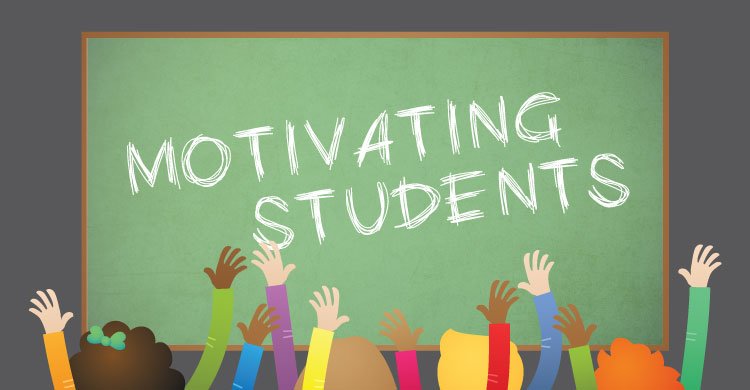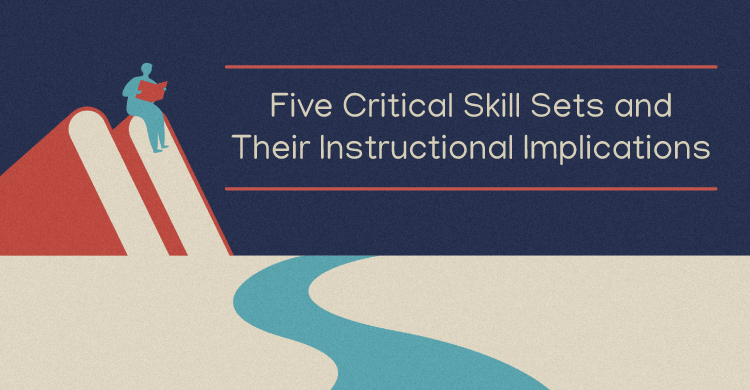Based on Behavior: The Forgotten Curriculum
We want students to care, to be engaged, to be self-motivated, to have intrinsic motivation. Let’s allow them to be engaged and motivated.
Consider this quote from Carol Dweck, Gregory Walton, and Geoffrey Cohen: “When noncognitive factors are in place, students will look—and be—motivated. In fact, these noncognitive factors constitute what psychological researchers call motivation, and fostering these mindsets and self-regulation strategies is what psychological researchers typically mean by motivating students.”
The research is in. Motivation can be taught. More precisely, the skills that contribute to students’ appearing and acting motivated can be taught. They must be taught.
The same applies to reading. Can we teach students to read? Of course we can.
And yet, I submit that we never actually teach reading. We help students develop alphabetic principles and concepts of print. We teach the 16 or so skills within the domain of phonological awareness (from the recognition and imitation of rhyme and alliteration to the blending, segmenting, and substituting of phonemes). We teach the skills within simple and advanced phonics (from letter sounds to syllabication). We teach the skills of reading fluently and with expression (chunking, scooping, phrasing) and vocabulary-acquisition skills. And we teach students to apply the many, many skills and strategies associated with comprehension.
(Note: this list of what we teach is not to suggest that teaching reading is a sterile, step-by-step endeavor, just that there are many components that make up the teaching of reading.)
Within these learning experiences, when are we specifically teaching reading? I suggest that, while each of these elements relates to making sense of what we read (they relate to students learning to read), we are not “teaching reading”; we are teaching specific and critical elements to contribute to a student reading.
Teaching Motivation
The same is true of motivation. Can we teach students to look, act, and be motivated? Certainly. The research is clear (see Farrington, et al., 2012). If we teach (and create environments and experiences that allow) students to feel that they belong in academic communities, that their ability and competence grow with their effort, that they can succeed, and that school has value for them; they will have growth mindsets and will be more likely to look, act, and be motivated.
| If we model, teach, and nurture … | Students will … |
| Empathy, cooperation, self-advocacy, responsibility, and interpersonal skills | Learn social skills and will be more likely to look, act, and be motivated |
| Study skills, metacognition, self-regulation, and goal-setting | Develop learning strategies and will be more likely to look, act, and be motivated |
| Grit, tenacity, delayed gratification, self-discipline, and self-control | Develop perseverance and will be more likely to look, act, and be motivated |
| Attendance, homework skills, organization, and participation | Be more likely to look, act, and be motivated |
Perhaps we cannot directly teach motivation, but we can and must teach the antecedent skills and habits that lead to students looking, acting, and being motivated.
Empowering Students
In addition to nurturing these skills, let’s empower students, giving them a stake in their learning, teaching them responsibility, giving them the responsibility, and holding them accountable to take responsibility for their learning. We can involve students in the processes of:
- Gathering evidence
- Getting and giving feedback
- Engaging in the relearning
Understanding Why Students Are Unmotivated
If students aren’t motivated, that’s not the end of the conversation, as in, “Well, they don’t care. What do you expect us to do?”
If a student does not seem motivated, we need to ask why. More than ever, we have lots to draw on as we answer this why question.
If students don’t appear motivated, we should ask if they know how to:
- Pay attention in class
- Participate in learning experiences
- Complete homework
If students don’t complete work, we should ask if they know how to:
- Manage their time
- Plan tasks
- Organize their materials
- Take and review notes
If students don’t seem to know how to be successful learners, we should ask if they know how to:
- Set goals
- Delay gratification
- Practice self-discipline
- Persevere
If students don’t work well and/or interact with peers and adults, we should ask if they know how to:
- Communicate socially
- Cooperate
- Consider others’ points of view and feelings
If students don’t seem to connect or believe in themselves, we should ask if they:
- Feel like they belong in the classroom and at the school
- Believe that they get smarter when they put forth effort
- See value in school and in learning
- Are given tasks with which they can succeed in their zone of proximal development (ZPD)
Behaviors are as important to success in school, college, career, and life as academic skills. The research —and our experiences—are clear and convincing. (See also Teamwork: The Number One Skill Employers Want) Consider again the conclusions of Carol Dweck and colleagues: “Psychological factors—often called motivational or noncognitive factors—can matter even more than cognitive factors for students’ academic performance” (Carol S. Dweck, Gregory M. Walton, and Geoffrey L. Cohen).
If we are truly committed to all students learning at high levels—and if we’re willing to do whatever it takes to make that happen—then we must be willing to nurture both students’ behavioral and academic skills. And we must be committed to modeling and teaching the skills to lead to motivation; we must be committed and prepared to teach motivation.[author_bio id=”77″]






